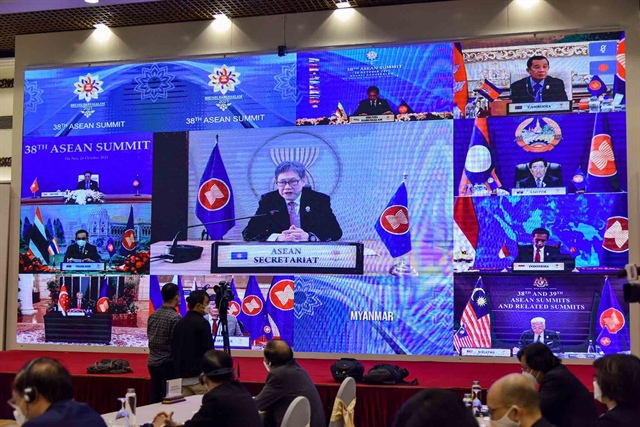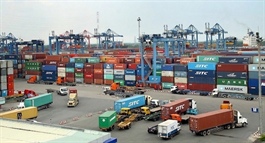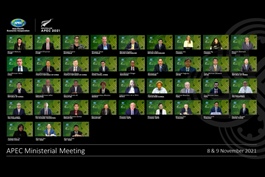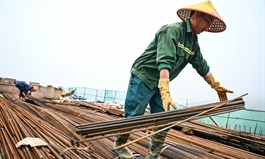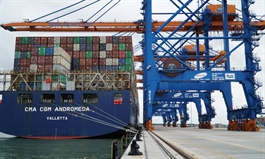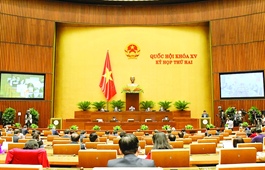ASEAN members unite on pandemic control, sustainable recovery
ASEAN members unite on pandemic control, sustainable recovery
The 38th and 39th Summits of the Association of Southeast Asian Nations (ASEAN) and related meetings took place online in late October with a focus on the fight against Covid-19 and economic recovery.
ASEAN Community development
ASEAN was one of the worst affected regions by the pandemic in 2021.
With the theme “We care, we prepare, we prosper”, the ASEAN meetings addressed the need to bolster the capacity of the ASEAN Community towards post-Covid-19 economic recovery, enhancing the bloc’s readiness to tackle shared challenges, seize opportunities to pursue shared prosperity and maintain cooperation to achieve the long-term goals of the region.
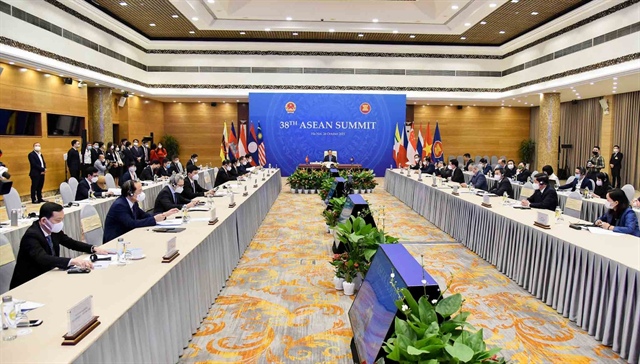
Prime Minister Pham Minh Chinh addresses the 38th ASEAN Summit |
Expressing concerns over the negative socioeconomic impacts of the pandemic, ASEAN countries stressed that the immediate solutions should include national vaccine rollouts, strengthening public health systems and advancing economic recovery. At the same time, ASEAN also needs to ensure the equitable access to vaccines for all people.
Apart from cooperation on pandemic control, ASEAN leaders emphasized the need to stabilize and maintain supply chains and help businesses in production transformation and digitalization in accordance with new conditions. While taking note of the positive progress made in implementation of the ASEAN Comprehensive Recovery Framework, ASEAN countries highlighted the need to continue to expedite initiatives that have yet to be commenced, and to utilize innovation, creativity, and digital transformation as catalysts for recovery.
ASEAN leaders adopted the ASEAN Travel Corridor Framework (ATCAF) and exchanged views on other feasible agreements to facilitate essential travel within the region under the ATCAF. The leaders also discussed the possibility of using and mutually recognizing vaccine e-certificates. The regional countries welcome the upcoming launch of the ASEAN Regional Reserve of Medical Supplies (RRMS) and ASEAN Center for Public Health Emergencies and Emerging Diseases (ACPHEED) to better tackle future emergencies.
At their meetings, leaders of ASEAN and partner countries reached a high level of consensus on measures to enhance cooperation against the Covid-19 pandemic, especially improving medical capacity, vaccine self-sufficiency, restoring socioeconomic development, and resuming travel. They pledged to step up collaboration in the fields of digital transformation and the green economy, and in effective response to climate change toward sustainable recovery and development.
|
Inclusive, integrated, flexible approach
Vietnam engaged in all discussions of the ASEAN meetings which took place over a course of three days from October 26-28, and many initiatives raised by Vietnam won support from other countries.
Addressing the 38th summit, Prime Minister Pham Minh Chinh proposed that organization members pursue an inclusive, integrated and flexible approach in addressing the Covid-19 pandemic, placing people and business at the center of these efforts in the spirit of “harmonizing interests and sharing risks”. He urged ASEAN to shift to a new strategy of safely adapting and flexibly responding to circumstances, and effectively containing Covid-19 while fostering recovery. To this end, it is necessary to enhance efficiency of coordination mechanisms, improve capacity of health systems, and ensure self-reliance on vaccines and medications, said the prime minister. Chinh also announced Vietnam’s list of earmarked medical supplies worth millions of US dollars to the ASEAN Regional Reserve of Medical Supplies (RRMS).
The prime minister also suggested that ASEAN position itself in the context of balancing and reshaping global political-economic relations. ASEAN must consolidate its role as the core of multi-layered processes for multilateral dialogue, cooperation and economic integration in the region. In order to engage deeply in regional and global supply chains, raising the attractiveness and appeal of the ASEAN markets and advancing the post-pandemic economic recovery process, ASEAN should strive for digital transformation, a circular economy, green technology, renewable energy and quality human resources, the prime minister said.
|
| ASEAN leaders adopted dozens of decisions and documents, including the Bandar Seri Begawan Declaration on the Strategic and Holistic Initiative to Link ASEAN Responses to Emergencies and Disasters (ASEAN SHIELD); ASEAN Leaders’ Statement on Upholding Multilateralism; ASEAN Leaders’ Statement on Blue Economy; ASEAN Joint Statement on Climate Change to the 26th Conference of the Parties to the United Nations Framework Convention on Climate Change; Terms of Reference for the High-Level Task Force on the ASEAN Community’s Post-2025 Vision; and Roadmap, the Consolidated Strategy on the Fourth Industrial Revolution for ASEAN. |


